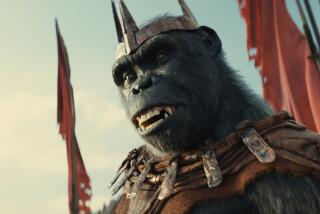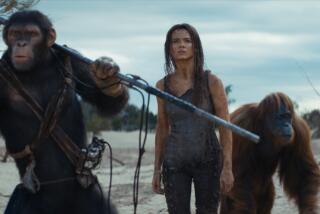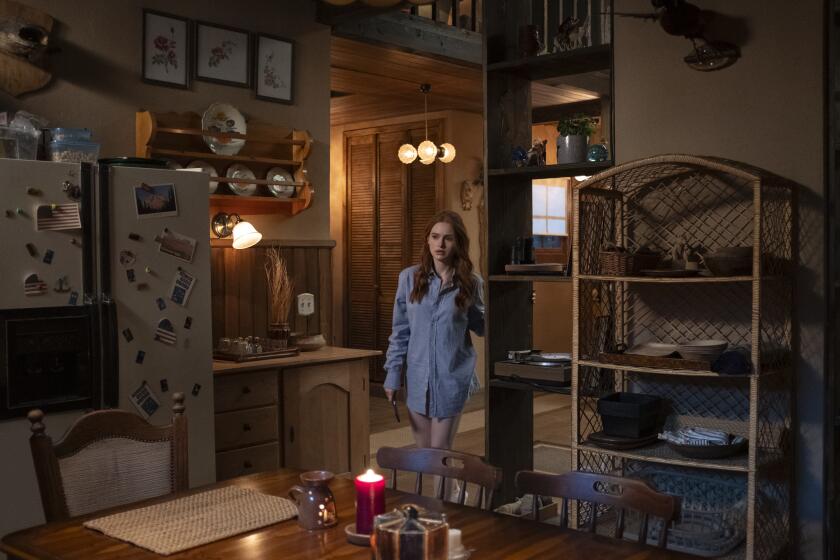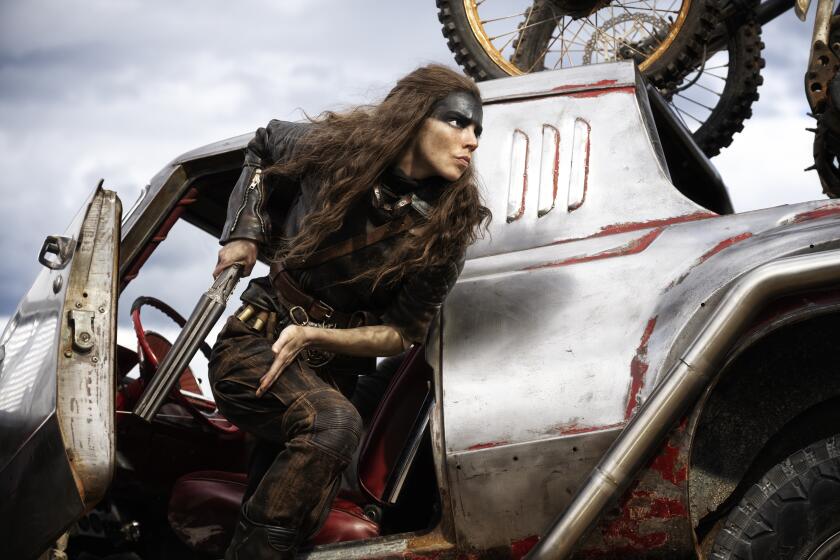For ‘Planet of the Apes’ ’ Matt Reeves, several boyhood connections
When he was 13, Matt Reeves began directing homemade movies with a friend. The Los Angeles teenagers would collaborate on homages to the 1970s genre cinema all around them, making shorts that for Reeves included such childhood grandiosities as “Intergalactic Battles.”
Reeves’ boyhood chum didn’t grow up to be an accountant or an orthodontist: He’s J.J. Abrams, the high-profile creator of “Alias” and “Lost,” and director of the new “Star Trek” reboots and the upcoming “Star Wars” sequel (and who in “Super 8” even made a nostalgic ode to his childhood pursuits with Reeves).
In the years since the two teamed up to create the 1990s college-set TV series “Felicity,” they’ve had rather different careers. Reeves spent a long time turning down movies offered to him, has also been turned down for gigs he wanted and made a well-reviewed vampire movie (“Let Me In”) that few saw because the company releasing it went under.
His one hit was the low-budget monster movie “Cloverfield.” It was produced and godfathered by... Abrams.
But as Reeves’ “Dawn of the Planet of the Apes” prepares to hit theaters this weekend, the filmmaker is set to take his own place on Hollywood’s tentpole stage. The visually elaborate Fox film — a sequel to 2011’s “Rise of the Planet of the Apes,” that imagines what happens when an ascendant ape race vies with humans for Earth’s depleted resources — has been earning early raves as a dark moral parable and is poised to dominate the box office this weekend. It’s the kind of movie that can goose Hollywood stock and put a director on the pop-culture map in the space of one weekend.
“There used to be people who thought I was J.J.’s protégé. I’m sure there are still people who think that,” Reeves says, laughing, before noting he’s actually older than Abrams (by two months).
Reeves’ rise, at 48, highlights both the strategy and capriciousness that underlie a successful Hollywood career — and shows that for every well-plotted decision in pursuit of one, there are a dozen other factors a director can’t control.
Since “Felicity” went off the air in 2002, Reeves has been weighing a number of movies. Abrams persuaded him to make “Cloverfield,” which went on to become a surprise hit in 2008. Still, Reeves remained deliberate; even as he directed the remake of the Swedish cult hit “Let the Right One In,” he turned many things down. He developed and then stepped away from a high-profile “Twilight Zone” reboot he felt he could never quite get his head around. He chose to work on independent projects such as a script he wrote called “The Invisible Woman,” which he never got financed.
“I tried to get him for a lot of things and he just said no,” says Fox’s president of production Emma Watts. “He didn’t feel it inside.”
He felt it this time around — after a little while. When Rupert Wyatt opted not to direct the second “Apes” movie, Fox and producers Peter Chernin and Dylan Clark were in search of a new director. Clark said he recalled Reeves sparking to a “Planet of the Apes” poster in Clark’s office at an unrelated meeting more than a year before. He called Reeves and after some cajoling, the director came aboard.
Like Abrams, Clark noted, Reeves may represent a new kind of fan director, the kind who grew up with a property and would likely buy tickets to its reboot if he or she weren’t making it.
“It’s amazing that you had a young man who was obsessed with ‘Planet of the Apes’ and a young man who was obsessed with ‘Star Wars,’” Clark says. “And now each of them are making those movies.”
Reeves cops to the “Apes” obsession, saying that he became engrossed in the short-lived 1974 TV series and even owned the masks from it (which he used as props in his teenage home movies with Abrams). His approach with the reboot, he says, was to combine the epic with the intimate, the latter served by a relationship between Caesar (Andy Serkis, in another uncanny motion-capture performance) and scientists played by Jason Clarke and Keri Russell.
With a personal and ideological rivalry between Caesar and the ape Koba, there’s also a heavy thematic element about hawkishness and the psychology of violence that has already generated comparisons to the modern Middle East; Reeves is a believer that you can smuggle in some big ideas in a genre context.
Such ambitions aren’t easy, not with a big-budget studio production for a movie coming out in summer’s overheated multiplex climate. Fox initially proposed a different version that focused more on the humans. Reeves, who prepared for this movie in part by watching nature documentaries about apes, had an idea that would focus more on the ape community and its evolution.
For the most part, his vision won out, which he says he still can’t quite believe.
“Of course I waited for the shoe to drop,” he says. “I did have to be tenacious a number of times throughout making the movie. I’d say, ‘This is what I pitched you and it’s all in the vein of that.’ And [the studio] totally agreed. They let us make the movie. I’m still somewhat in shock.”
Reeves offers a personal explanation for why he has been so deliberative in his career. It’s an insight that, for all of Web fandom’s belief that a particular person should direct a particular movie because it “just makes so much sense,” shows the actual thought process is far more delicate.
“It’s really not out of something lofty, but I feel I need an emotional compass that tells me where to put the camera or I can’t make a movie,” he says. “Every time I’ve turned something down it has been self-preservational. I just don’t think I’d make a very good movie.”
Russell had a rare glimpse into the careers of Reeves — and Abrams — as their collaborator on “Felicity” more than a decade ago, and as a star of Abrams’ Mission: Impossible III.” She describes a “very sweet connection they’ve always had since they were teenagers, a lot of which has to do with this kind of crazy excitement that I don’t think you can fake.”
She does say that she believes they approach work somewhat differently: “Matt tends to be more like me; he thinks about something a lot. J.J. is much more proactive. He’ll say yes much more easily.”
The actress (who “Felicity” fans might be happy to know keeps in close touch with both) says that for all her admiration of their high-profile careers, she is “totally surprised” their resumes went in such a genre direction. “I’m like, ‘Guys, make people movies!’” she said she jokes to them.
Of course, a movie like “Apes” has plenty of human drama too, particularly in how the apes relate both to each other and to the humans; Reeves notes that “for whatever pyrotechnics and grand scale action [the movie has], I think the idea of conflict between Caesar and Koba really fulfills the shape of classic drama.”
Reeves fans may not have to wait as long for his sensibility to re-emerge. He’s attached to make a third film in the rebooted series, presuming all goes well with this release. The filmmaker likely have plenty of goodwill after “Dawn.” But it should be pointed out that directing a big property and then running with a sequel is also the province of one J.J. Abrams.
More to Read
Only good movies
Get the Indie Focus newsletter, Mark Olsen's weekly guide to the world of cinema.
You may occasionally receive promotional content from the Los Angeles Times.







